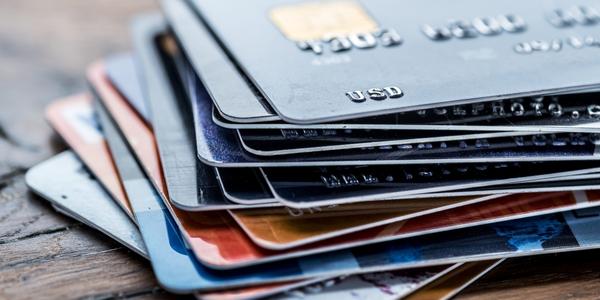You can’t divorce your credit card debt. But who’s responsible for it if you get divorced?
Going through a divorce is rough. The separation can severely disrupt people’s lives, let alone their finances. Still, there are several financial matters to untangle — marital assets, budgets, bank accounts, loans, etc. It’s a messy process that often involves divorce lawyers.
If you and your spouse share a credit card, you’ll need to sort that out too.
But who’s responsible for making payments during and after the divorce?
We’ve outlined various scenarios to help you determine who’s liable for credit card debt and how to protect yourself in the event of a divorce. Please note this is not legal advice and you should seek counsel from a certified legal professional.
Who Is Responsible for Credit Card Debt in a Divorce?
Settling debt is tricky when married couples get a divorce. However, in most cases, if the credit card is in your name, you’re responsible for paying off the balance. Similarly, if the card is in your spouse’s name, they’re responsible for paying off the balance. And, unsurprisingly, if it’s in both of your names, you’re both responsible.
Card issuers don’t care about your marital status. They just want to be repaid. If you signed an agreement to pay back what you borrow, you’re on the hook. That said, your partner could be on the hook too, depending on where you live and how divorce proceedings play out.
Let’s take a look at some of the factors that influence who’s responsible for credit card debt in a divorce.
Which state do you live in?
The first thing you should consider is where you live. State laws can vary, but they’re generally divided into two categories: common law and community law.
In common law property states, whoever incurred the debt is responsible for paying it back. If it’s a joint debt, it’s an equal split. In community law property states, you’re both responsible for the credit card debt if the account was opened after you were married. That’s true whether it’s an individual account or a joint credit card account with your spouse.
Most states abide by common law, also known as equitable law. On the other hand, only nine states follow community law:
- Arizona
- California
- Idaho
- Louisiana
- Nevada
- New Mexico
- Texas
- Washington
- Wisconsin
Who’s on the credit agreement?
When deciding who’s responsible for what in a divorce, determine whether the asset or debt is marital property or separate property. In the context of credit cards, was the account opened before or after you got married?
If you opened the credit card before marrying your spouse, you’re the only one on the credit agreement. That means you’re responsible for the debt. Even if a judge decides that your spouse has to help pay off the balance, you’re still obligated to ensure payments are processed. Otherwise, credit card companies could take action against you.
Because it’s your name on the loan.
If you opened the account after you married your spouse, then it depends on two things: (1) whether it’s a joint or cosigned credit card and (2) where you live.
- If the credit card is under your name alone and you live in a common law state, you’re the only one responsible for the debt.
- If the credit card is under your name alone and you live in a community law state, you and your spouse are equally responsible for the debt.
- If the credit card is in both of your names (joint account or cosigned), you and your spouse are equally responsible for the debt — regardless of where you live.
However, a judge could rule that either you or your spouse are responsible for paying it off — even if the account is only in one person’s name.
It’s also worth mentioning that authorized users are not liable for the primary account holder’s debt. But, again, a judge could rule otherwise.
The outcome of your divorce decree
Not all divorces result in lengthy, contested legal battles. If you and your spouse can peacefully come to terms, you might avoid setting foot in a courthouse. However, if you do go to court to settle matters, you’ll wind up with a divorce decree — a document that formalizes the stipulations of your divorce.
While this is a legal document, your divorce agreement doesn’t alter your existing credit card agreements. In other words, if your name is on the account, you’re still on the hook for making payments. Even if a judge rules that your spouse must pay off the debt. In that case, you may have to take further legal action to get your ex-spouse to stay true to the divorce decree.
How a Divorce Could Impact Your Credit Score
It’s wise to pay off and close all joint accounts when you get divorced. Otherwise, you run the risk of not only damaging your credit score but also racking up bills and even potentially risking your assets.
Let’s assume you have joint credit card debt with your partner. Even if you’re in a good relationship, you’re still susceptible to their credit activity. For instance, they could rack up a high balance without paying it off. Or they could miss a payment altogether.
These actions would adversely impact your credit score since it’s a shared account. The same holds true even if you’re just an authorized user. And if credit card balances remain unpaid, the card issuer may seek legal action.
Now, add a messy divorce into the mix, and it’s not hard to see why you should close any accounts you and your ex opened together.
When Am I Responsible for My Spouse’s Debt?
Generally speaking, you’re responsible for any credit card debt in your name. But what about other forms of debt?
Considering things like houses and cars are such large purchases, it’s common for married couples to apply for financing together, especially in dual-income relationships. It helps improve a couple’s chances of not only getting approved but also getting the best interest rates and terms.
But who’s responsible for the debt?
Mortgages
Divvying up property during a divorce isn’t easy. That said, the same rule of thumb for credit cards applies to mortgages and other forms of debt. If both your name and your spouse’s names are on the mortgage, both of you are responsible for making payments.
If only one person’s name is on the mortgage, it’s more complicated. A court will likely take various factors into account, such as financial situation, children, and whether the house qualifies as community property. Regardless, whoever’s name is on the loan agreement is responsible for ensuring the debt is repaid.

Car loans
Just like mortgages, car loans are the responsibility of whoever’s name is on the agreement. For instance, if you cosigned your partner’s car loan, you’re still responsible for repayments in the event they stop paying.
That’s why it’s prudent to pay off any joint auto loans prior to getting divorced. One option is to sell the vehicle and split the profits. Or, if you want to keep the car, you could apply to refinance the loan, which would effectively remove your ex-spouse from the loan.
Student loans
Student loans are the responsibility of whoever took out the loan. However, similar to other forms of debt, if you took out your student loan during your marriage, your partner may be equally responsible for paying it back. Again, that depends on whether or not you live in a community property state.


How to Protect Your Credit During a Divorce
Hopefully, your divorce is a smooth transition for both you and your ex. But let’s be realistic — relationships don’t always end amicably. Whether or not you anticipate friction during this process, it’s important to insulate yourself from future financial harm.
Here are a few tips for protecting your credit during a divorce.
Remove authorized users
It’s not uncommon for couples to share credit cards. Perhaps you added your spouse as an authorized user on your card, or vice versa. Regardless, it would be wise to remove your spouse (or disconnect yourself, if it’s their card) as an authorized user. That way neither of you are susceptible to the other’s credit activity.

Pay off and close any joint credit accounts
When it comes to personal finance and divorce, it’s best to start anew. That means discussing and agreeing upon who’s responsible for what balance, paying it off, and closing the account(s). You may also need to consult a family law attorney to facilitate an equitable distribution of assets.
Try to refinance loans to remove an ex
Divorced or not, you and your former spouse are bound to any lending agreements you may have entered into together. That said, you can contact your lender to see if they’d be willing to remove either you or your ex from the agreement. If they decline, you can try and refinance the loan to enter a new agreement in only one person’s name (most likely the person who will be responsible for the remaining loan).
Keep an eye on your credit reports
Mistakes happen. Make sure you and your ex-partner are no longer associated with each other’s credit accounts. You can do so by routinely checking your credit reports for suspicious activity or errors (which you should be doing anyway).

Speak With a Divorce Attorney
Some aspects of divorce are straightforward — like whether you live in a common law or community law state. But even the nuances of state laws can convolute the divorce process. To ensure you aren’t taken advantage of, consider speaking with a divorce lawyer for personalized legal advice.
;)






